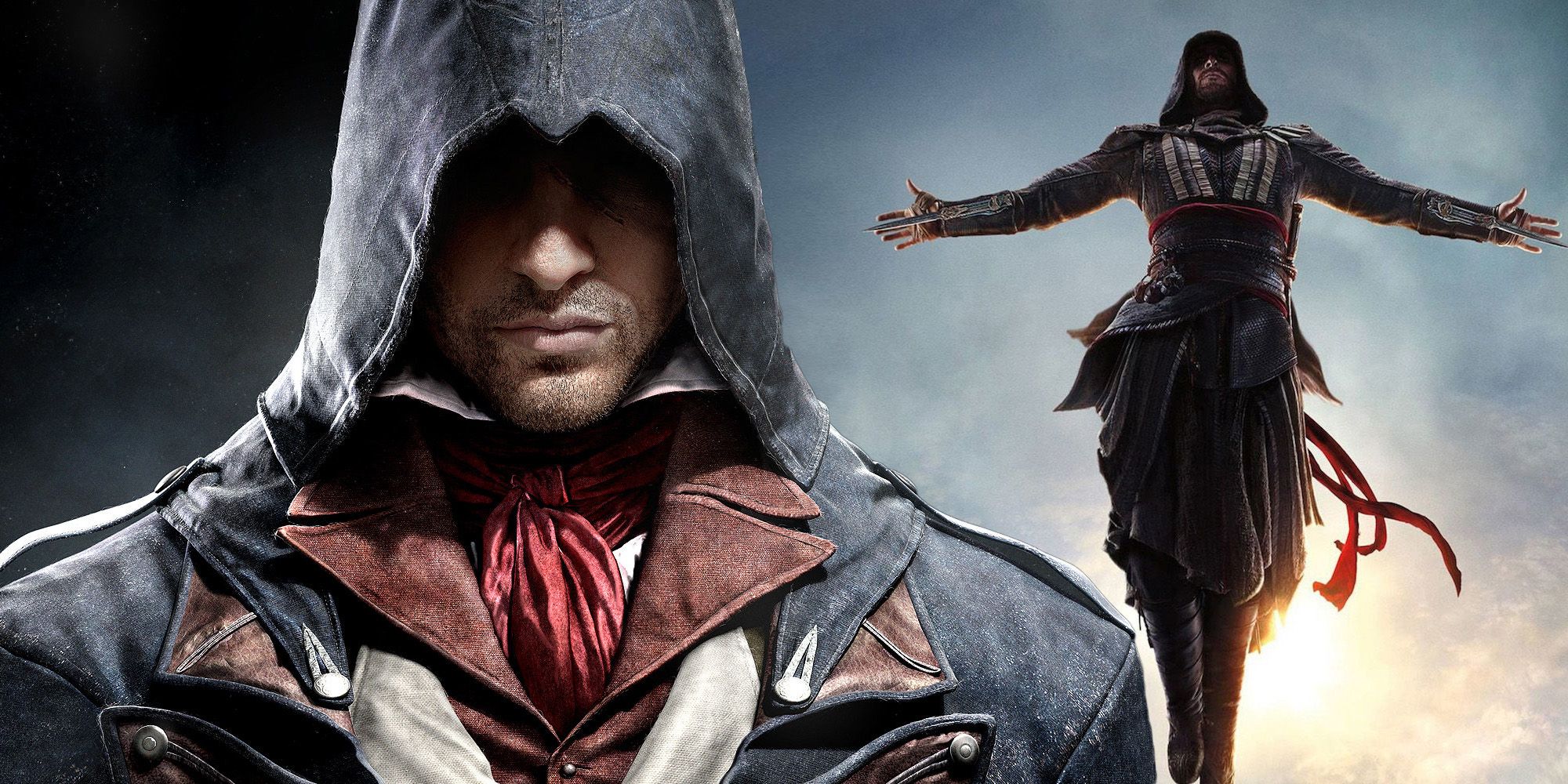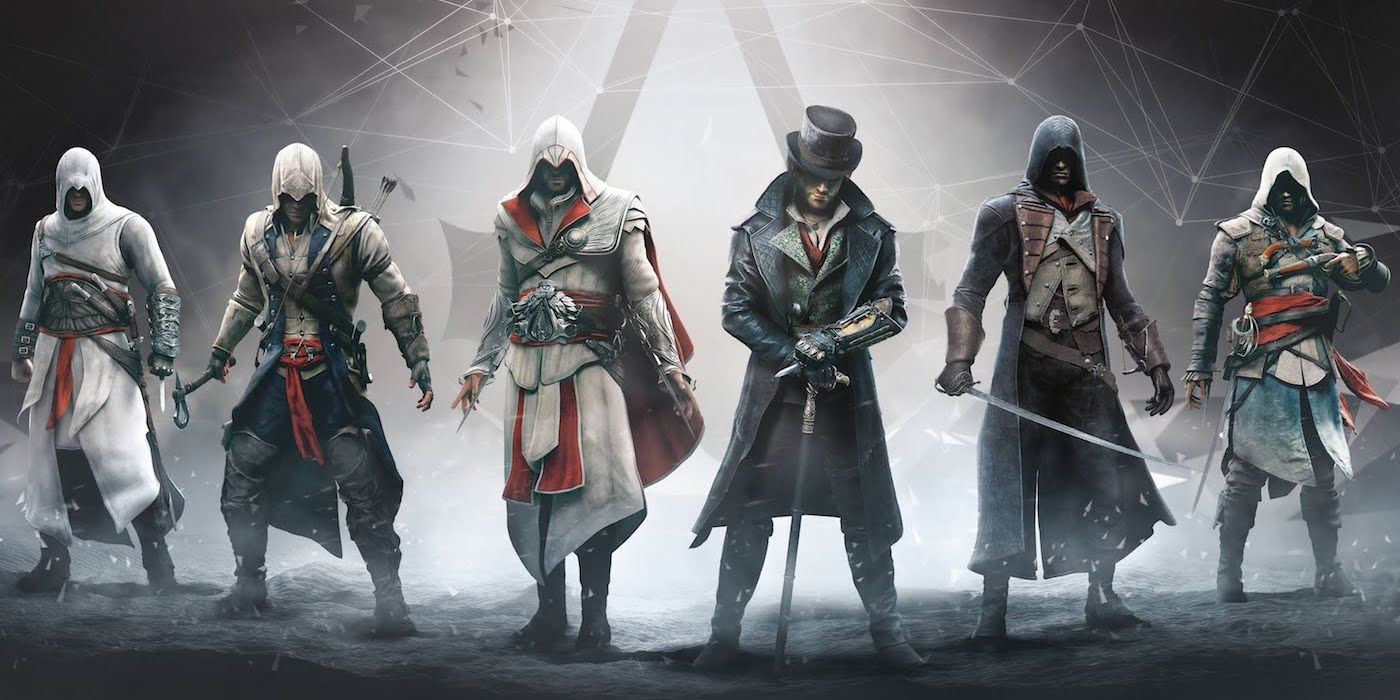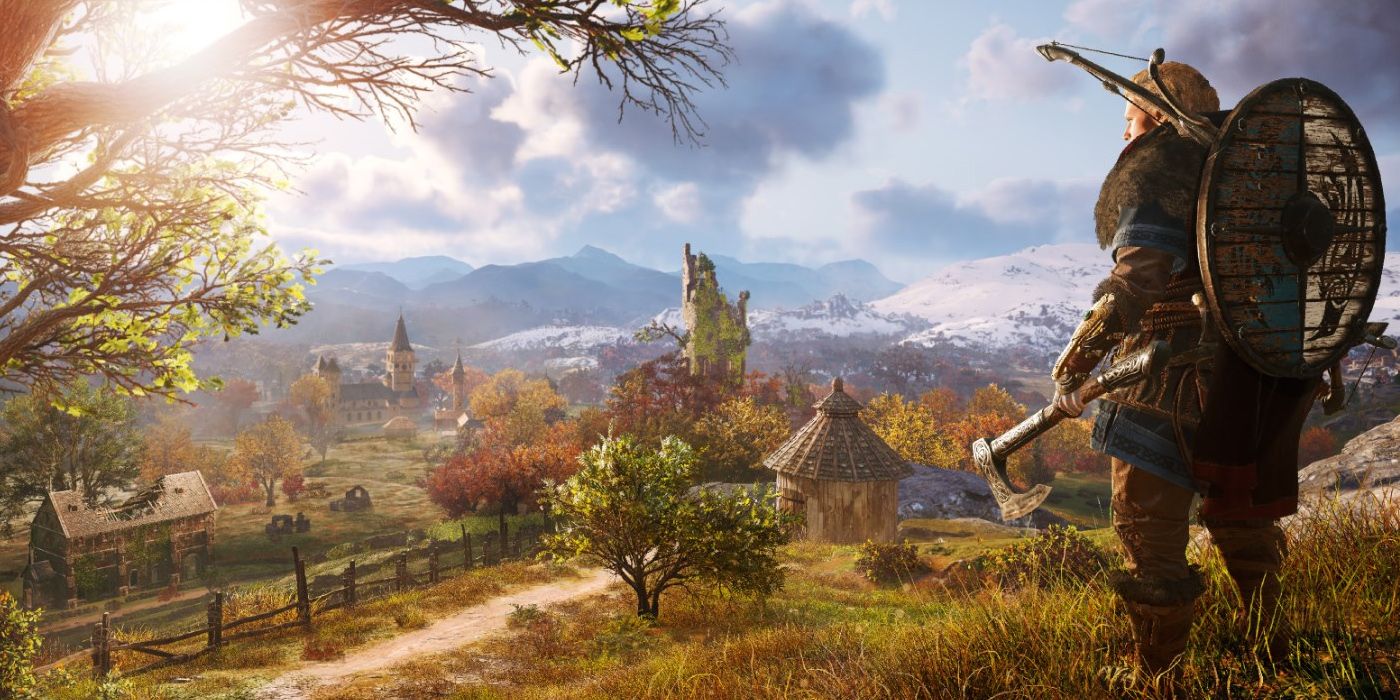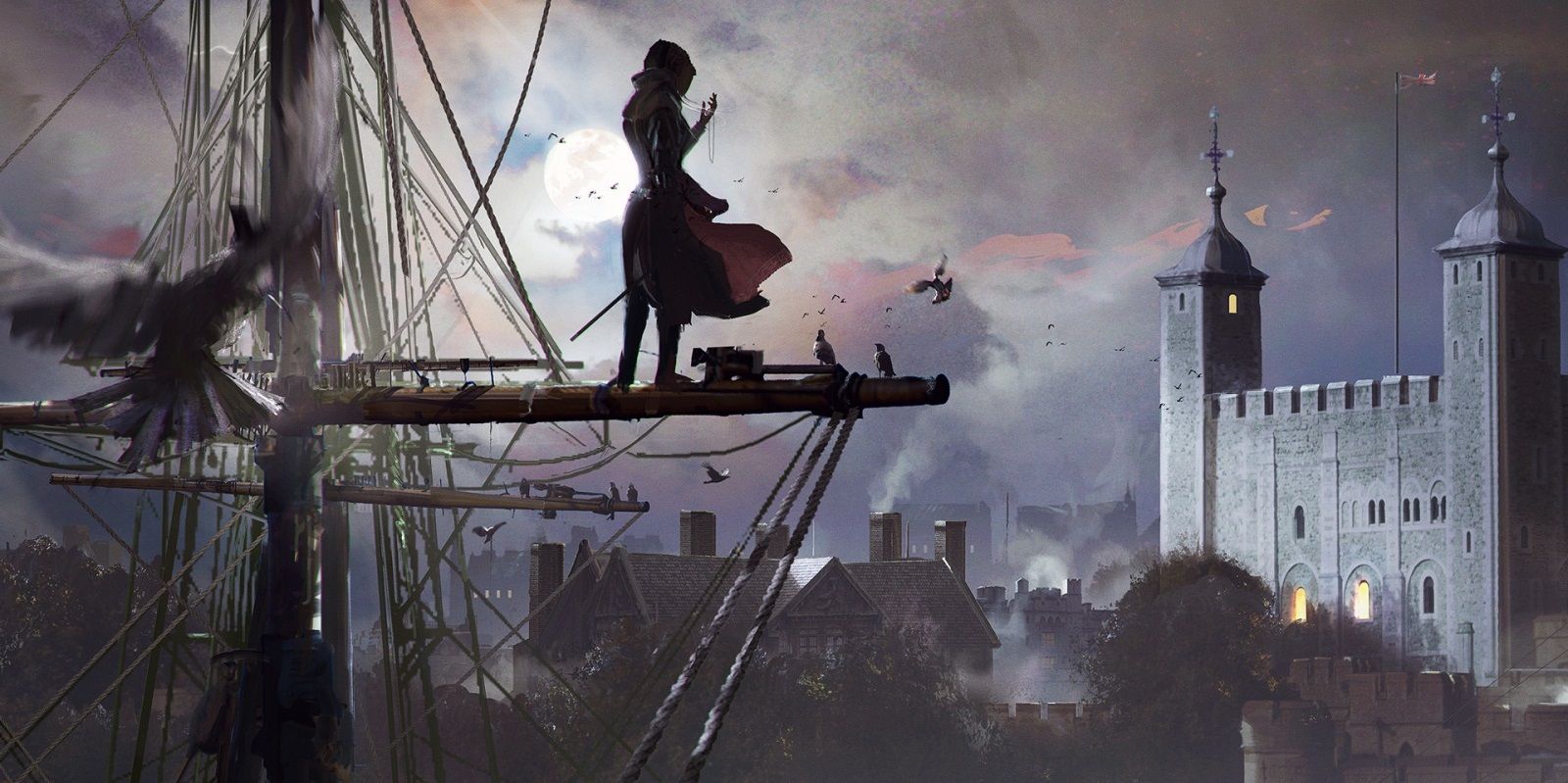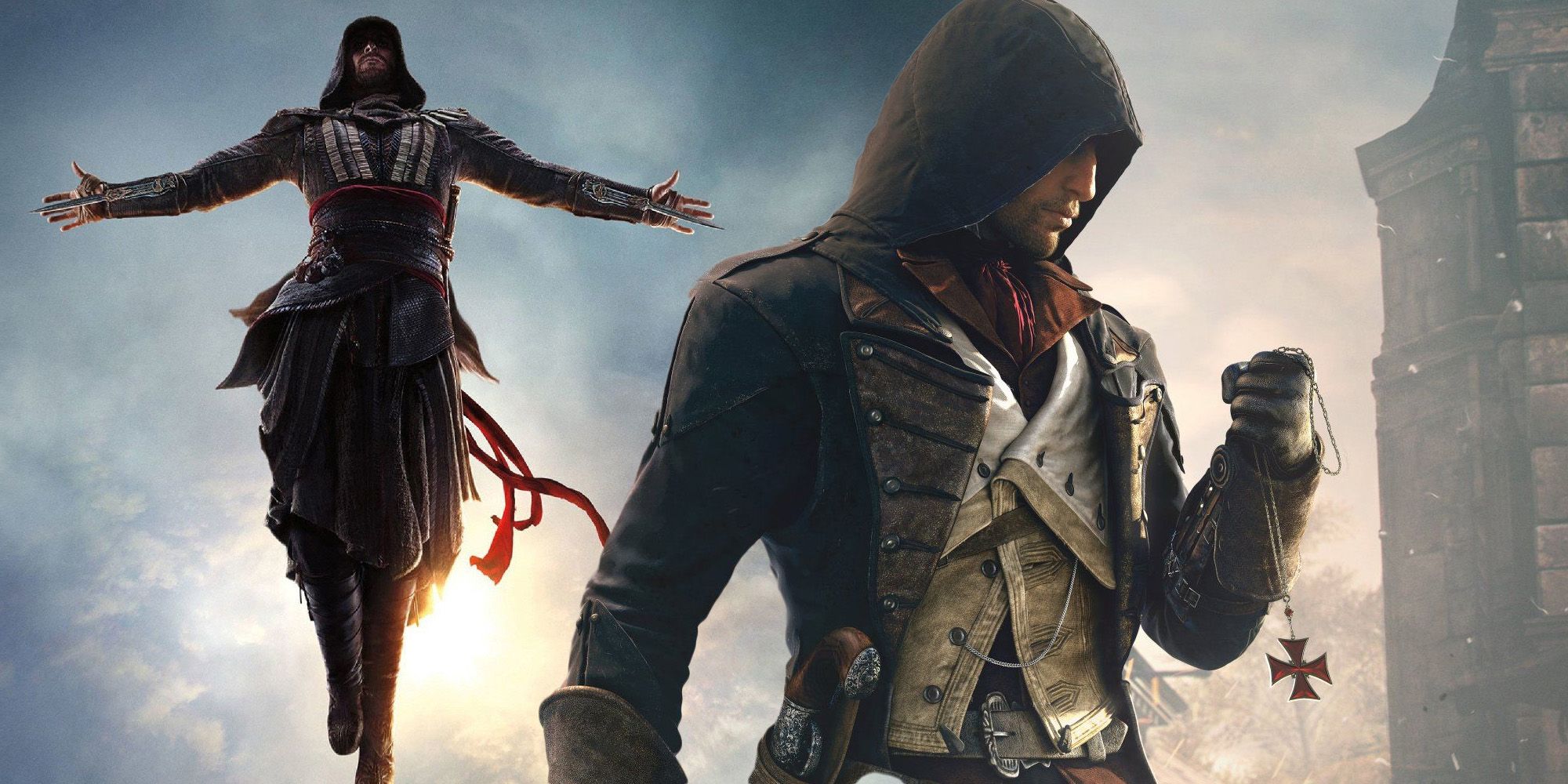As Netflix begins developing its Assassin’s Creed live-action TV series, fans of the video games will be watching closely to make sure the show doesn’t fall into the same pitfalls as the 2016 Michael Fassbender film. Assassin’s Creed the movie, while boasting one of the best casts seen in a video game adaptation, fell short of doing justice to the franchise in several key ways. On top of that, it simply wasn’t a very good film.
Of course, that isn’t a surprise given the context. Video game movies have been the laughingstock of the industry for decades, with even the most commercially successful adaptations falling to attacks by critics and fans of the source material. However, that trend looks like it could be changing. Detective Pikachu and Sonic the Hedgehog were both well-received, and Netflix has already had success in the field with recent shows like Castlevania and The Witcher. With luck, Assassin’s Creed will follow suit.
For Netflix to make their show work where the Fassbender movie failed, it will have to avoid the common pitfalls of past video game adaptations. TV shows have generally seen more success in this space than movies lately, so in that way Netflix seems off to the right start. Fans don’t just want the series to not be terrible, though. They want it to be good. For that to happen, here a few things Netflix should keep in mind.
Netflix's Assassin's Creed Should Be An Anthology Series
Now that Netflix has had success with an anthology format in The Haunting of Hill House and the Haunting of Bly Manor, they should carry that structure into the upcoming Assassin’s Creed show. For starters, it’s a fresh and interesting formula that could help the series avoid the ever-present streaming danger of early cancellation. Independent seasons mean more room for evolution and adaptation over time, which could help sustain the series from a strictly business perspective.
But an anthology structure would do way more for Assassin’s Creed than simply keep it alive. The games themselves are anthologized – each major entry centering a different core character or group, in a different location, at a different point in time. Egypt, Greece, Italy, France, and more have all been the venues of different games in the series, and an anthology format would be perfect for that fluid setting. The show would stay true to the nature of the games, while also constantly enlivening itself with fresh new locales, characters, and storylines.
Beyond that, an anthology format would be perfect for Assassin’s Creed’s running theme of genetic memory. In the games, each era and story is told through the memories of a present-day person, accessed through a machine called the Animus. Recycling cast members as different characters from one season to another à la Haunting or American Horror Story would fit with that idea, and it could even make narrative sense if the same person was tapping into the memories of different ancestors in each season.
Netflix's Assassin's Creed Needs To Honor The Video Games
This might seem obvious, but it’s easier said than done. No two games are the same, which means no two adaptations can rely on the same formula for success. In any medium, reinterpretation is a balancing act – retaining as much of the source material to satisfy fans and justify the name, while also bringing enough new to the table that it doesn’t feel redundant. With video game adaptations specifically, the usual complaint is that the movies/shows feel nothing like the original, though they've had more luck when serialized.
Assassin’s Creed should have an easier time in that regard simply because its material – sweeping epics set in major historical moments with some light sci-fi peppered in – already feels ripe for a show. The difficulty will be in making sure it doesn’t becoming generic, and that the ways it’s unique map onto what makes the games unique. That's where the movie fell short, and pulling it off means more than just Easter eggs. A character jumping off a ledge into a pile of hay and a few good hidden blade assassinations won’t be enough to make the Netflix show feel authentic.
Every time a story is brought a new medium, the trick is in carrying the same energy to the new version. It’s difficult to put your finger on exactly what that is, and how to recreate it, but for Assassin’s Creed, it’s definitely tied to the games’ sense of discovery. It would be incredibly easy for Netflix to make yet another high-budget swords-and-sandals-type historical epic, but Assassin’s Creed isn’t just about fighting. At its best, it’s about climbing to places no one else has been, and discovering things no one else knows. That sense of discovery must be core to the TV series as well.
Netflix's Assassin's Creed Needs To Have Mystery
Along those same lines, the Assassin’s Creed show needs to have an element of mystique. At its best, the game series accented its core historically-based stories with just enough modern sci-fi and conspiracy theory/ancient aliens wildness to keep it interesting. Abstergo, the Animus, and the secrecy around the “Pieces of Eden” artifacts were the added flavor that made the story unique, not the centerpiece that held it together. Almost always, when those elements stopped being fun mystery and started being heavily explained focal points of the story, the games suffered.
It’s no secret that almost always, questions are more interesting than answers. Netflix has some creative liberty to take with Assassin’s Creed, which means that the nature of the Templar conspiracy theory plotline could change significantly. If the show does keep the Pieces of Eden and all that they imply, it should hold those elements in the background as much as possible. In the games, the magical artifacts held fascination because they appeared so sparsely. The 2016 film used them merely as a plot device, devoid of any real intrigue. In the new series, Netflix should avoid that mistake at all costs.
The Assassin’s Creed mechanic of accessing different memories could also be used to great dramatic effect for the season-by-season plotlines. There’s huge potential for nonlinear storytelling, for instance, or for employing the games’ “corrupted memories” idea to leave some secrets unrevealed until later. The franchise essentially has a built-in excuse to hide things from the viewer until the perfect time, which could be a great way to make the show feel fresher than past game adaptations.
Netflix's Assassin's Creed Needs To Balance Historical and Modern Stories
An oft-neglected fact is that the Animus was created primarily for gameplay reasons, not narrative reasons. Did it fit in with the story in an interesting way? Sure, but that wasn’t its ultimate goal. The Animus was a catch-all explanation for the sorts of weird things that happen in games. It justified why you played certain levels, why Altair couldn’t swim, why you heard the same NPC dialogue repeatedly while walking through the streets, basically every technical idiosyncrasy common to games at the time.
For that reason, the Animus/Abstergo plotline was never the primary story. Rather, each entry centered on a historical conflict between the Templars and Assassins Guild. The games spend about 90 percent of their time in their respective historical periods, and the other 10 percent or less in the present day. The 2016 film failed in part because it tried to make these two stories equal – an attempt that only hampered both. Like the Pieces of Eden, the modern-day parts of Assassin’s Creed work best when they add flavor, not when they are the focal point. The movie missed that balance, and it came off largely as soulless, CGI-bloated, overwrought sci-fi.
It’s possible that Netflix could ignore the Animus plotline altogether, and simply tell a single story set in some past time. They could do it and still capture the essence of the games. However, it seems unlikely. Regardless of the fact that it was created for mechanical reasons, the Animus is a key piece of Assassin’s Creed. But it shouldn’t be the key piece - or at least, not the only one.

